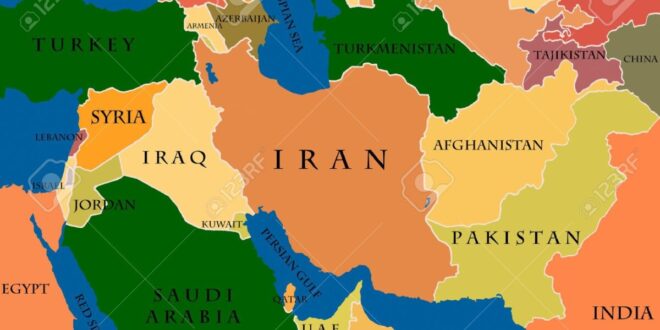Farzad Ramezani Bonesh
The Turkish Minister of Energy and Natural Resources announced that a one-year Turkey-Nakhchivan gas pipeline will be built in accordance with agreements reached last year between the two countries’ leaders.
The Turkey-Nakhchivan gas transmission pipeline from the Igdir region of Turkey lasts 85 km and annually transports 500,000 cubic meters of gas to Nakhchivan court and provides Nakhchivan’s needs to gas completely. The following article focuses on the approaches and goals of Ankara and Baku regarding the Turkey-Nakhchivan gas pipeline.
Baku and Turkey-Nakhchivan gas pipeline
The Autonomous Republic of Nakhchivan is part of the Republic of Azerbaijan. In fact, Nakhchivan is an autonomous republic in Azerbaijan, which has no territorial and geographical connection with the main body of the territory of the Republic of Azerbaijan.
This autonomous republic is bordered by Iran and the Republic of Turkey from the south and northwest and to the Republic of Armenia from the north and northeast. In addition, Nakhchivan is located in the south of the Caucasus and north of the Aras River, and the length of the borders of this republic with Armenia is 224 km, Iran, 163 km and Turkey, 12 km only. The area of this autonomous republic is 5,500 km.
After the collapse of the Soviet Union and the beginning of the war between Armenia and Azerbaijan, the land connection between Nakhchivan and Baku was cut off. In fact, Turkey and Iran play an important role in the survival of this part of Azerbaijan.
Also, considering the small border between this Republic and Turkey which is 12 km, (comparison with the 163 km border with Iran) in fact, Iran played a strategic and important role in the continuation of the economic and political life of Nakhchivan.
In such a way that during the first war of Nagoro-Karabakh, prevented a human catastrophe by providing energy and needs of Nakhchivan. However, in the last decade, Baku has taken steps to reduce Nakhchivan’s dependence on Iran.
Azerbaijan, with its vast gas resources, has no problem with gas supplies. But providing the energy needed by Nakhchivan has always been a source of concern for the Azerbaijani authorities. Therefore, Azerbaijan needs Iran to transfer gas to Nakhchivan.
So, the contract of gas swap from Azerbaijan to Nakhchivan through Iran is concluded for 20 years between Iran and Azerbaijan, and was implemented in 2005 and is continuing until 2025. Under these conditions, in the gas swap agreement with Iran, the right of transit to Iran will be kept for this country, but with the Turkey-Nakhchivan pipeline, the Azerbaijan’s dependence on Iran for gas transit will be eliminated.
Following this approach, in the last decade, a lot of attention has been paid to the expansion of transportation infrastructure between Nakhchivan and Turkey. Turkey and Azerbaijan have designed several projects like building freeways, direct flights between Nakhchivan and Turkey, and the construction of a railway line between Turkey and the Nakhchivan Autonomous Republic (on the Nakhchivan-Igdir route), to reduce dependence of this autonomous republic to Iran. The Igdir-Nakhchivan gas pipeline, if operational, will play a vital role in Nakhchivan’s energy security.
Also, even if Iran never put an obstacle in the way of sustainable supply of gas to Nakhchivan, Baku will continue to diversify its Nakhchivan gas supply, and the security of supply and demand in favor of Turkey and Azerbaijan.
In fact, taking into account its differences with Iran, and trying to prevent the surrounding of Nakhchivan by Iran and Armenia, or the growing dependence of this republic on Iran under the cease-fire, peace or war conditions, Baku is thinking of the increasing of the Republic’s ties with Turkey and reducing its dependence on Iran more than ever. In fact, Baku has tried to reduce its political, geopolitical and economic dependence on Iran, and considering its strategic relations with Turkey, practically become dependent on this country.
On the other hand, Nakhchivan also may become a scene of conflict between Azerbaijan and Armenia, so it is important for it to be supplied with Energy by its ally. In the meantime, Baku is somewhat hopeful that in the future it can provide Armenia’s gas from Nakhchivan, using Turkey-Nakhchivan gas pipeline.
Ankara and Turkey-Nakhchivan gas pipeline
In the past, a significant part of Nakhchivan’s imports was have been done through Iran, but now, Turkey intends to have a strong presence in various economic, military and security fields in Azerbaijan.
So, the two sides have invested billions of dollars in the other country and trade between Turkey and Azerbaijan has been expanded. Meanwhile, reducing Iran’s role in Nakhchivan is one of Turkey’s main priorities.
In addition, relations between Turkey and the Republic of Azerbaijan are at a very high level, except for a very short period in 2009. In the meantime, Erdogan now desperately needs the support of nationalist sentiments and nationalist and secular movements in Turkey to advance his goals.
In such circumstances, further support for the Republic of Azerbaijan with the Turkish Nakhchivan gas pipeline will a sign that Ankara will continue to be loyal to Ataturk’s nationalist ideals. In addition, Turkey’s problems with other neighbors, especially Greece and Cyprus, have drawn its more serious attention to Azerbaijan.
In another dimension, Turkey has tried in recent years to become a ‘transit and energy hub’. Azerbaijan also plays an important role in Turkey’s energy security and even has become Turkey’s largest natural gas supplier for the first time. With the implementation of the gas pipelines from Baku, Turkey has been able to virtually eliminate its dependence on Iran for its gas supply.
In addition, the project of the Turkey-Nakhchivan gas pipeline dates back to 2010. Turkey signed an agreement with Azerbaijan to transfer gas to Nakhchivan, but the project was abandoned. But one of the current projects of the country is to replace Iran in Nakhchivan gas swap.
In addition to diversifying its gas resources (Russia, Iran, Azerbaijan, the United States and Qatar, as well as Nigeria and Algeria), Turkey enjoys both transit right and geopolitical benefits from the pipelines.
In this situation, gas pipelines (Azerbaijan, Georgia and Turkey), Trans-Anatolian (Tanap), Trans-Adriatic (TOP) gas transmission pipeline are of great strategic importance for Turkey. This will increase energy exports, increase foreign exchange earnings and improve the economic situation, create interdependence and ultimately increase the country’s geopolitical position.
Senior Researcher and Analyst of International Affairs
 Geostrategic Media Political Commentary, Analysis, Security, Defense
Geostrategic Media Political Commentary, Analysis, Security, Defense





